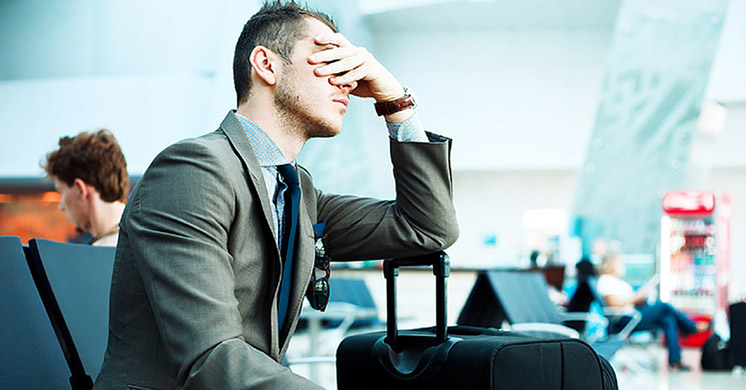
Sleep apnea can wreak havoc on the best laid vacation or business travel plans. Traveling with sleep apnea could lead to a worsening of the condition, as the sleep hygiene habits that you regularly follow inevitably change with your surroundings. But with a little preparation, you can thoroughly enjoy your trips.
Avoid Travel Temptations
Indulging in excessive alcohol and food consumption while away from home can worsen sleep apnea. Alcohol makes the throat relax while sleeping, which increases the probability of breathing obstruction. Noticeable weight gain takes time to occur, but if you travel frequently, you might end up eating food that isn’t as healthy while also reducing the time you spend exercising. These habits could lead to tissue building up around the airways.
Sleep deprivation also triggers sleep apnea. Adjusting to new time zones might be difficult, but it’s crucial that you avoid exhaustion. Make sure you get plenty of rest throughout your trip.
Traveling with a CPAP
Continuous positive airway pressure (CPAP) machines are prescribed by doctors for people who don’t respond to less conspicuous treatments for sleep apnea. These machines help keep airways open using a mask, tubing, various filters, and a heated humidifier. The most important thing to remember when traveling with your CPAP machine is planning ahead. The American Sleep Apnea Association recommends you get “a letter of medical necessity” from your doctor before your trip, should you need to use your CPAP while in transit.
While packing your machine, make sure to bring international power converters along with an extension cord. The layouts of hotel rooms vary greatly; some rooms may have power plugs that are too far for the CPAP cord to reach. Also, the bedside table might be inadequate to hold your CPAP machine, so you should phone ahead to make sure that, at the very least, the hotel can provide a table to set your device upon. You may need to bring a portable power source in the event your destination or means of travel doesn’t have a power plug.
The majority of airport security officers and staff that serve the travel industry are familiar with CPAP machines. Nonetheless, it’s a good idea to notify security about your machine before going through the screening process to avoid potential mishaps. The mask and tubing should be packed in your carry-on because they don’t need to be inspected and this will help them remain sanitary.
Worried about Sleep Apnea Grounding You?
Having sleep apnea doesn’t have to ruin your trip. The doctors at Houston Sinus & Allergy have experience helping travelers deal with sleep apnea while on the go. Contact an expert if you have any questions about how your condition may affect your travel plans.

